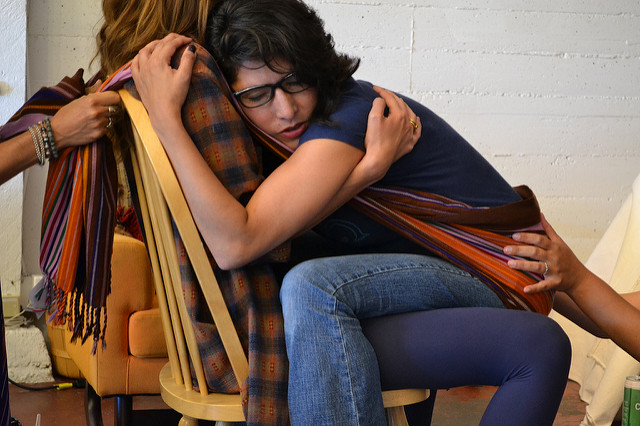
We’ve all heard the saying, “To forgive is to forget.”
I struggled intellectually against this concept most of my life. How could I forget something bad another person did to me? Why would I want to open myself up to be hurt again by forgetting the offensive situation?
Two years ago, I came to understand true forgiveness in a profound way.
2015 was a grueling year for me. I resolved to see my husband and our marriage through a dark time. Though damage had been done, I worked daily to set aside my ego and choose the path of unconditional love and compassion.
By October, progress was being made and we were slowly healing and rebuilding. We met my family for dinner to celebrate my birthday. During the course of the evening, my husband made two or three jokes at my expense that cut me to the core.
His words had venom seeping out from beneath a sarcastic veneer. I had never felt so small. I wanted the earth to suck me into its depths, never to be seen again. Somehow, I managed to keep a poker face the rest of the evening and not dissolve into a puddle of despair.
When we left the restaurant, my husband asked me if anything was wrong. I begged my heart to stay open and guide me. With a shaky voice, I told him his words had hurt me incredibly and to never say those words to me again. He humbly apologized and I could feel his sincere desire for forgiveness.
My inner voice said, “If you remember his unkind words tonight, they will scar your heart forever.” I immediately resolved never to think of those words again. I can honestly say I don’t remember exactly what he said that devastated me. The words are not burned into my memory. The gist of what was said is barely in my consciousness.
If we are striving for true forgiveness, we need to stop carrying around the mental baggage of our wounds. Sometimes we want to hold on like we are witnesses to a crime and may be called to testify to these facts some day: “Where did this incident take place? What did the defendant say to you? What time of day did the incident occur? What were you wearing at the time? Were there any other witnesses to this crime?”
It’s like we have a filing cabinet full of evidence handy in case we need to defend ourselves in the future. This is a heavy burden to carry—it keeps us stuck in the past and weighs down our present relationships.
Forgive and forget.
It’s not about forgetting the lessons we’ve learned from the situation. It’s about allowing the small details to fade from memory, leaving our baggage on the side of the road, and watching it disappear in the rearview mirror. The further we distance ourselves from it, the fuzzier the details become. What were once crisp outlines and colors blur, and eventually vanish altogether.
Another important insight I gained is that the quicker the forgive and forget process happens, the easier it is to let go of those pesky details.
Rather than wasting precious time and energy dragging out files from our mental archives to re-examine and reopen old wounds, let’s commit to memory all the glorious details of our finest, most joyful moments instead.
It may have taken me 37 years, but I finally learned why forgetting goes hand in hand with forgiveness—a treasured birthday gift indeed.
“To forgive is the highest, most beautiful form of love. In return, you will receive untold peace and happiness.” ~ Robert Muller
~
Author: Valerie Byers
Image: Greendoula/Flickr
Editor: Lieselle Davidson
 Share on bsky
Share on bsky





Read 14 comments and reply